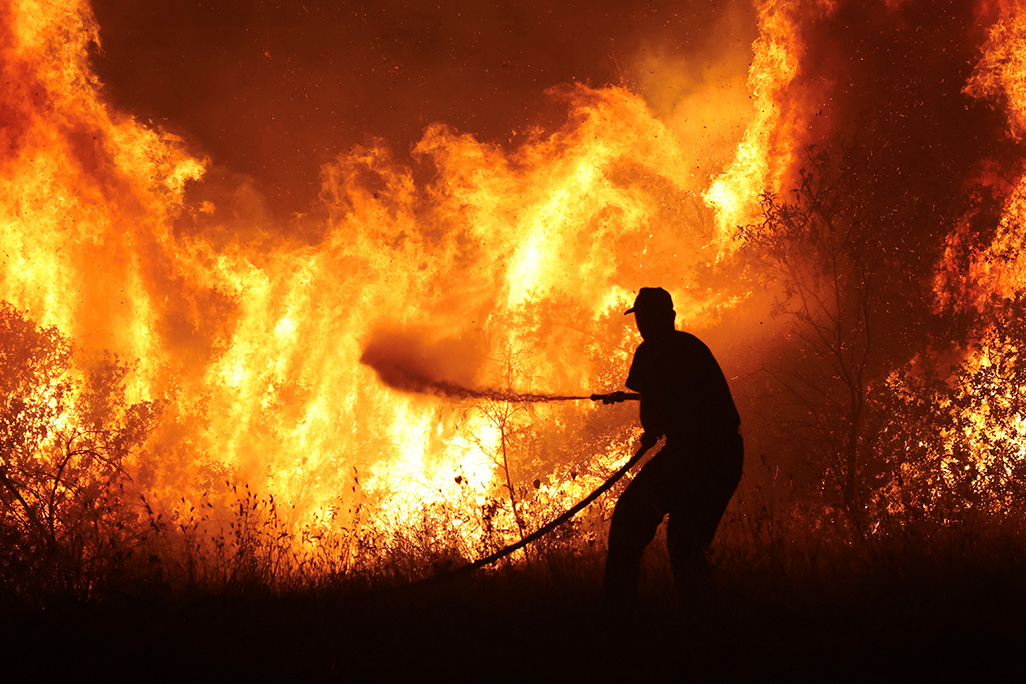Greek Prime Minister Kyriakos Mitsotakis said the country faced a dangerous summer for wildfires on Monday, with a prolonged drought and unusually strong winds contributing to tinderbox conditions.
Wildfires are common in the Mediterranean country, but hotter, drier and windier weather that scientists link to the effects of climate change has increased their frequency and intensity.
This weekend, dozens of fires broke out across Greece, including two close to the capital, Athens. More than 90 firefighters assisted by five aircraft and two helicopters were trying to put out a blaze on the island of Kos on Monday.
“It is a summer which is expected to be particularly dangerous … the most difficult times are still ahead of us,” Mitsotakis said as he addressed his cabinet.
“We had a very difficult June in terms of weather conditions with high drought and unusually high gusts of wind for the season,” he said, praising firefighters for managing to contain the weekend fires.
Mitsotakis said less than 100,000 square metres (24.7 acres) of land had been burned in the two fires, and that the damage was contained due to the response by state emergency authorities and the successful surveillance of forest land with drones. Greece has scaled up its preparations this year by hiring more staff and increasing training, after forest fires last year forced 19,000 people to flee the island of Rhodes and killed 20 in the north of the country.
Greece has already been using technology, including drones and data transmitters, to locate the blazes early, Civil Protection Minister Vassilis Kikilias said, according to a statement by the government spokesman.
The country now plans to increase its unmanned aircraft to 35 systems and beef up the number of trained drone operators to 139 from 104.
“Our arsenal might be stronger, but nothing – and that is seen in practice – beats being prepared, and for the public to also be involved in this collective defence against natural hazards,” Mitsotakis said.






Click here to change your cookie preferences